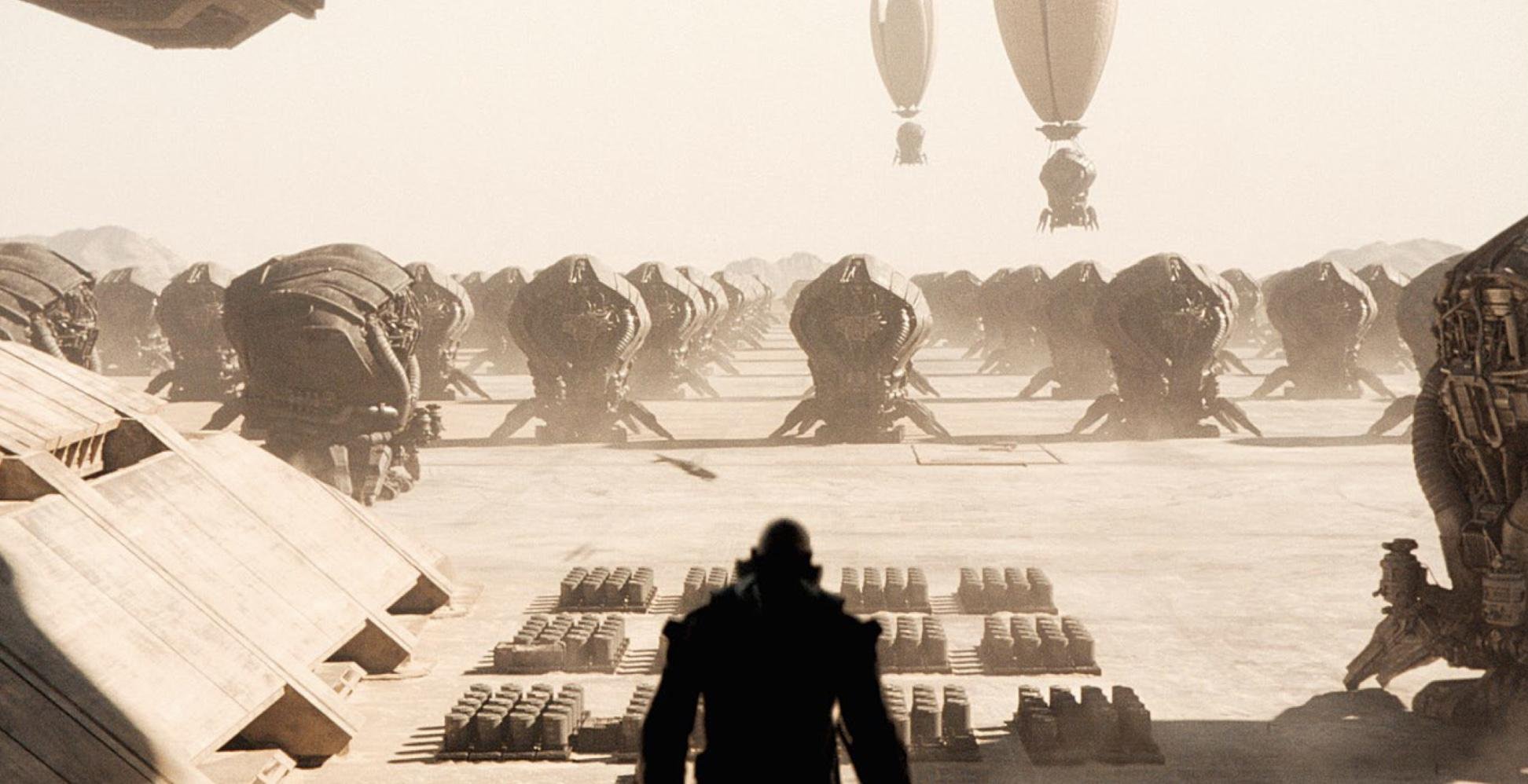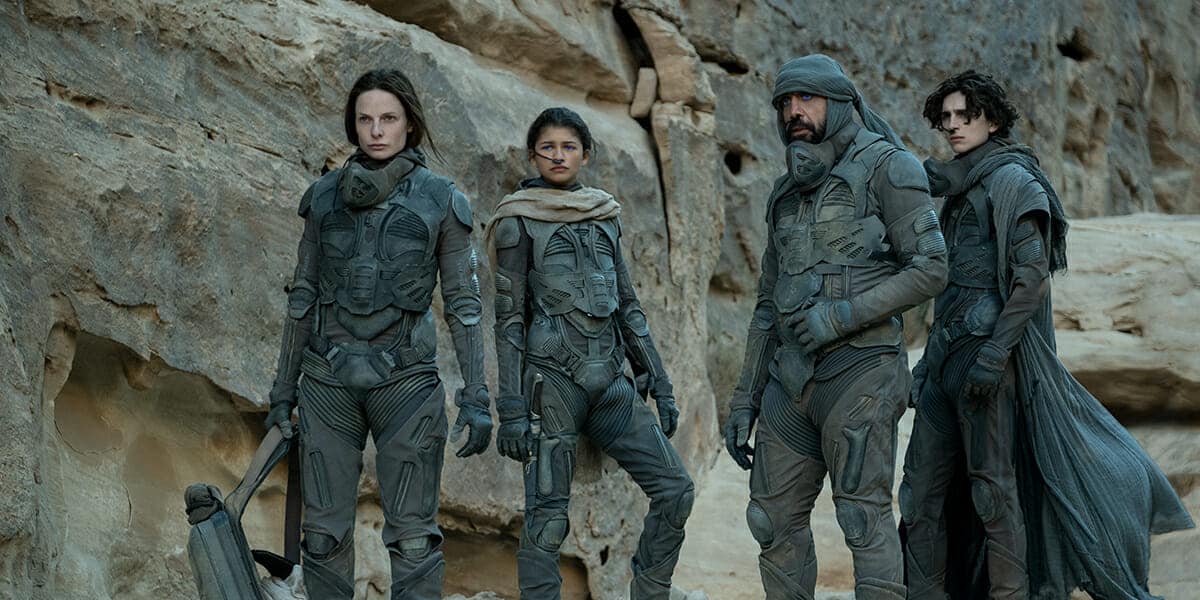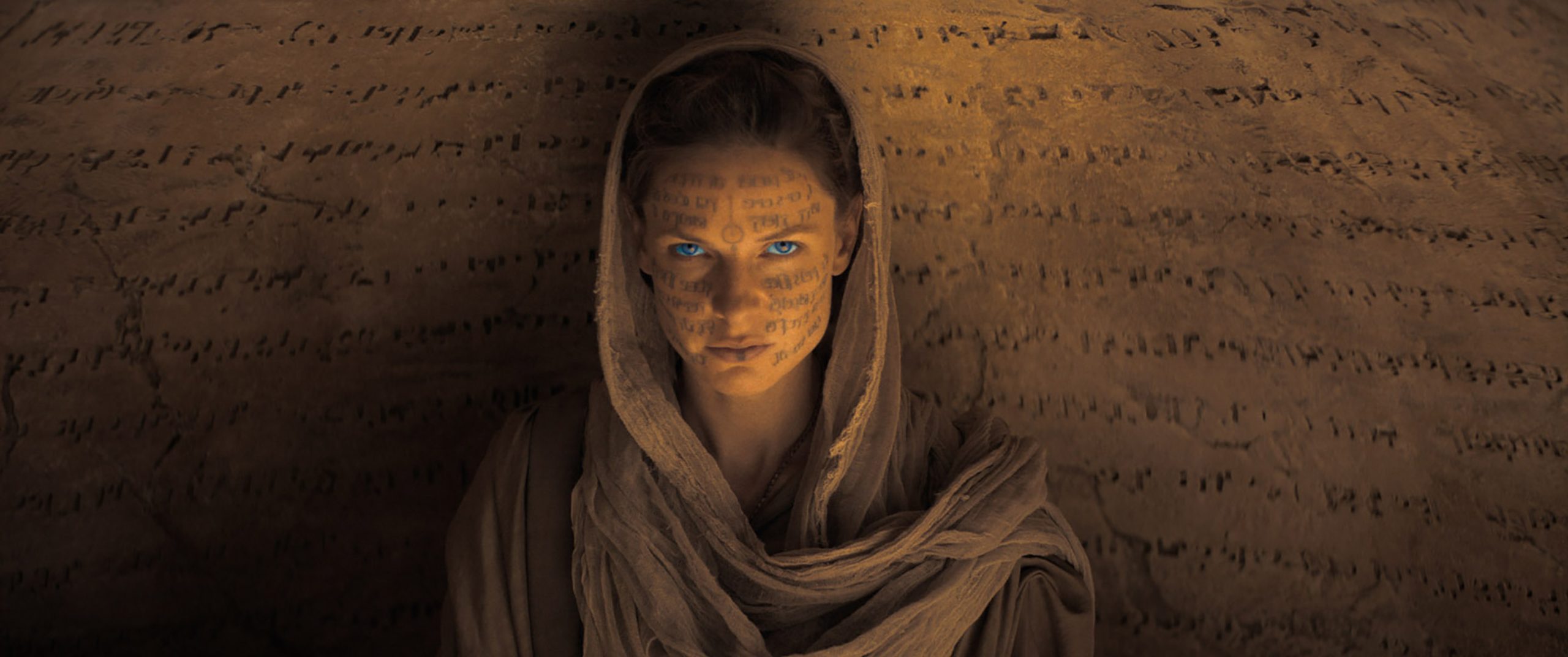Dune (2021)

Dune (2021), directed by Denis Villeneuve, is an epic adaptation of Frank Herbert’s groundbreaking 1965 science fiction novel. The film is a visually stunning and ambitious retelling of the first half of Herbert’s complex tale, set in a distant future where noble families vie for control of planets, and the desert planet Arrakis—source of the universe’s most valuable substance, the spice melange—becomes the focal point of power struggles and prophecies. With a star-studded cast, breathtaking cinematography, and a masterful score by Hans Zimmer, Dune captures the grandeur and depth of the original work while introducing it to a new generation of audiences.
The story begins with Paul Atreides (Timothée Chalamet), the young heir to House Atreides, as his family is given control of Arrakis by the Emperor. Arrakis is a harsh, unforgiving desert world, inhabited by giant sandworms and the native Fremen people, who have long been oppressed by the previous rulers, House Harkonnen. As the Atreides family navigates political intrigue and betrayal, Paul is thrust into a web of deadly conflicts. He is burdened with a mysterious destiny, haunted by prophetic dreams of a future where he is a messianic figure leading the Fremen in a rebellion against imperial forces.
Central to the film’s plot is the political maneuvering between the noble houses, particularly House Atreides and House Harkonnen, the former rulers of Arrakis. The treacherous Baron Vladimir Harkonnen (Stellan Skarsgård) conspires to reclaim control of the planet, setting the stage for a brutal conflict. The Atreides family, led by Duke Leto (Oscar Isaac), is well aware of the perilous nature of their new assignment, but they are determined to secure their legacy and bring justice to the oppressed Fremen. Meanwhile, Paul struggles with his own identity and the visions he has of a great war to come, where he might be the one to lead the Fremen and transform the universe.
One of the most striking aspects of Dune is its ability to combine the intimate with the grand. Villeneuve focuses on the personal journey of Paul Atreides, exploring his doubts, his destiny, and his growth as a leader. The internal conflict within Paul is portrayed with remarkable subtlety by Chalamet, who brings vulnerability and depth to the character. Paul is not merely a hero in the traditional sense; he is someone grappling with the weight of immense responsibility, unsure of whether the future he envisions is one he wants to bring into being.
The film also introduces the Bene Gesserit, a secretive sisterhood with extraordinary mental and physical abilities, whose members, like Lady Jessica (Rebecca Ferguson), play a pivotal role in shaping the future of the Atreides family. Jessica’s relationship with Paul is central to the emotional core of the story, as she tries to protect him from the deadly schemes surrounding them while also revealing secrets about his potential and his connection to the greater plans of the Bene Gesserit.
Visually, Dune is a masterpiece. Villeneuve, known for his visual sensibilities (as seen in films like Blade Runner 2049 and Arrival), brings the world of Arrakis to life with an epic scale that immerses the viewer in its vast, desolate landscapes. The film’s cinematography by Greig Fraser is extraordinary, capturing both the harsh beauty of the desert planet and the intricate details of the complex political intrigue. The scenes of sandstorms, massive sandworms, and towering spaceships evoke a sense of awe and wonder, making the world of Dune feel both alien and awe-inspiring.
The film’s production design and visual effects are also top-notch, with incredible attention to detail in the costumes, sets, and technology. The massive sandworms, in particular, are a visual marvel, their imposing presence creating an intense sense of danger and scale. The design of the cities, the ornately crafted ships, and the intricately designed costumes reflect the depth of the world-building that Herbert’s novel is known for.
The score by Hans Zimmer, a longtime collaborator of Villeneuve, elevates the film’s atmosphere, adding layers of tension, grandeur, and mysticism. Zimmer’s music complements the visual spectacle, with powerful, haunting motifs that underscore the epic nature of the story. The sound design is equally impressive, using silence and ambient noise to heighten the tension and make the environment feel both vast and oppressive. The sound of the sandworms moving beneath the desert, for example, is both thrilling and terrifying, encapsulating the looming threat that hangs over the entire narrative.
Dune is also a film that invites philosophical reflection on themes of power, ecology, religion, and destiny. Herbert’s novel is deeply concerned with the nature of leadership and the consequences of absolute power. In the world of Dune, political struggles are inextricably tied to ecological forces, as the control of Arrakis and its spice trade has far-reaching implications for the entire universe. The planet’s harsh desert environment is both a challenge to its inhabitants and a source of immense power, and its portrayal in the film underscores the environmental themes present in the novel. The film also explores the dangers of messianic belief and the burden that comes with being seen as a savior. Paul’s visions of a potential holy war that he may instigate weigh heavily on him, making him question the true cost of his destiny.
While Dune is undoubtedly a film with vast scope and world-building, it also benefits from a strong ensemble cast. In addition to Chalamet’s compelling portrayal of Paul, Rebecca Ferguson as Lady Jessica delivers a performance full of strength, vulnerability, and moral conflict. Oscar Isaac brings a quiet dignity to Duke Leto, while Stellan Skarsgård’s Baron Harkonnen is a terrifying presence, embodying the film’s darker, more corrupt elements. Zendaya, though not given a large role in this first part of the adaptation, appears as Chani, a Fremen warrior who plays a significant role in Paul’s future, and her presence hints at the deeper connections that will unfold in the second part of the story.
In conclusion, Dune (2021) is a breathtaking, immersive film that captures the essence of Frank Herbert’s novel while making it accessible to modern audiences. Denis Villeneuve’s direction, combined with stellar performances, remarkable visuals, and a powerful score, creates an unforgettable cinematic experience. The film’s complex narrative, rich themes, and intricate character dynamics make it a compelling start to what promises to be an epic two-part saga. Dune is a science fiction masterpiece that not only honors the source material but also stands as one of the most visually striking and thought-provoking films of recent years. 











